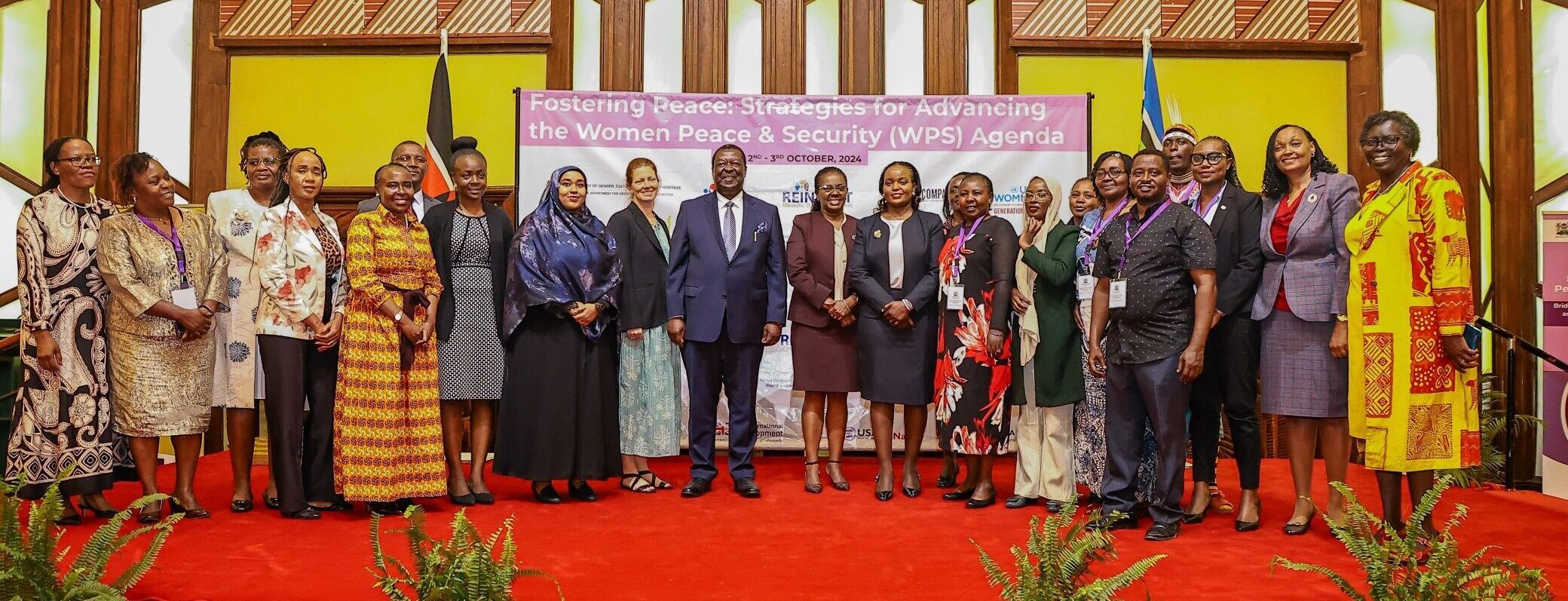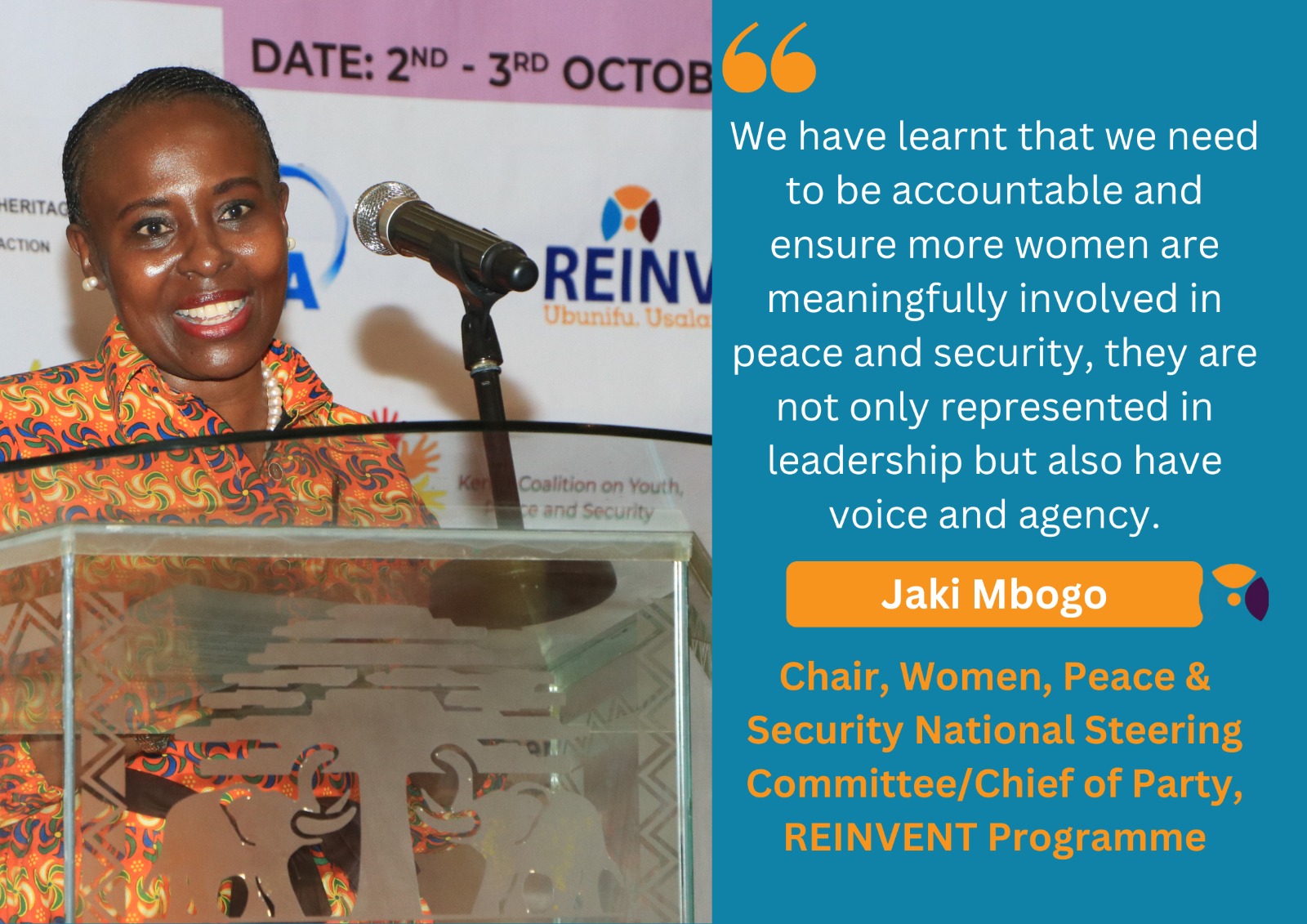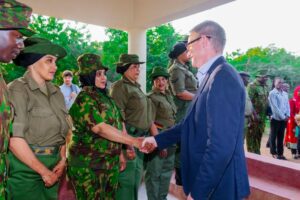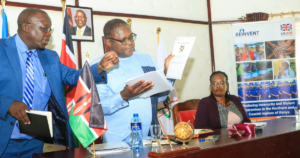Nairobi,30 October 2024
The month of October 2024 marked the 24th anniversary of United Nations Security Council Resolution (UNSCR) 1325—a groundbreaking moment that put women at the heart of peace processes. But anniversaries are not merely dates on the calendar; they’re chances to reflect on what’s been achieved, assess what still needs to be done, and renew commitments for the future. In Nairobi, at a regional symposium hosted by Kenya’s State Department for Gender alongside the REINVENT Programme, UN Women, and JICA, stakeholders from across Eastern and Southern Africa came together to do just that.
In a world where conflict disproportionately impacts women, UNSCR 1325 stands as a beacon of hope and resilience. Since its adoption in 2000, this resolution has underscored the vital role of women in preventing, managing, and resolving conflicts. Its call to action has resonated globally, with more than 110 countries—13 from Eastern and Southern Africa—developing National Action Plans (NAPs) to turn the vision of UNSCR 1325 into a practical framework. Kenya has taken the lead in this endeavour, with two NAPs and localized action plans across 18 counties, setting a standard that other nations are closely watching.
The Nairobi symposium offered a platform not just to celebrate these achievements but to look honestly at where gaps remain. Jaki Mbogo, Chief of Party for the REINVENT Programme and Chair of Kenya’s National Steering Committee on Women, Peace, and Security, captured this spirit in her opening remarks. She encouraged attendees to engage in robust discussions, emphasizing the significance of sharing Kenya’s own journey with UNSCR 1325. For Kenya, implementing two NAPs has been a testament to its dedication, yet the journey is far from over.
As Hon. Musalia Mudavadi, Kenya’s Prime Cabinet Secretary and Cabinet Secretary for Gender, reminded attendees, the work is continuous. Kenya is now setting the stage for its third NAP—an endeavour that will build on past achievements and confront present-day challenges. Mudavadi’s words underscored a crucial point: WPS isn’t a checklist or a series of events but an ongoing commitment, a lens through which every conflict and peacebuilding initiative must be viewed.
One shining example of Kenya’s commitment to the WPS agenda is the POLICARE initiative, launched under the REINVENT Programme in collaboration with Kenya’s National Police Service. This initiative tackles sexual and gender-based violence (SGBV) through a survivor-centred approach, providing a safe, integrated space for survivors to access the support they need. With POLICARE centres now operational in Nairobi and Nanyuki and combined with efforts by the REINVENT Programme to strengthen gender units in police stations to effectively support SGBV survivors, Kenya is not only speaking to the ideals of UNSCR 1325 but actively weaving them into the fabric of its institutions.
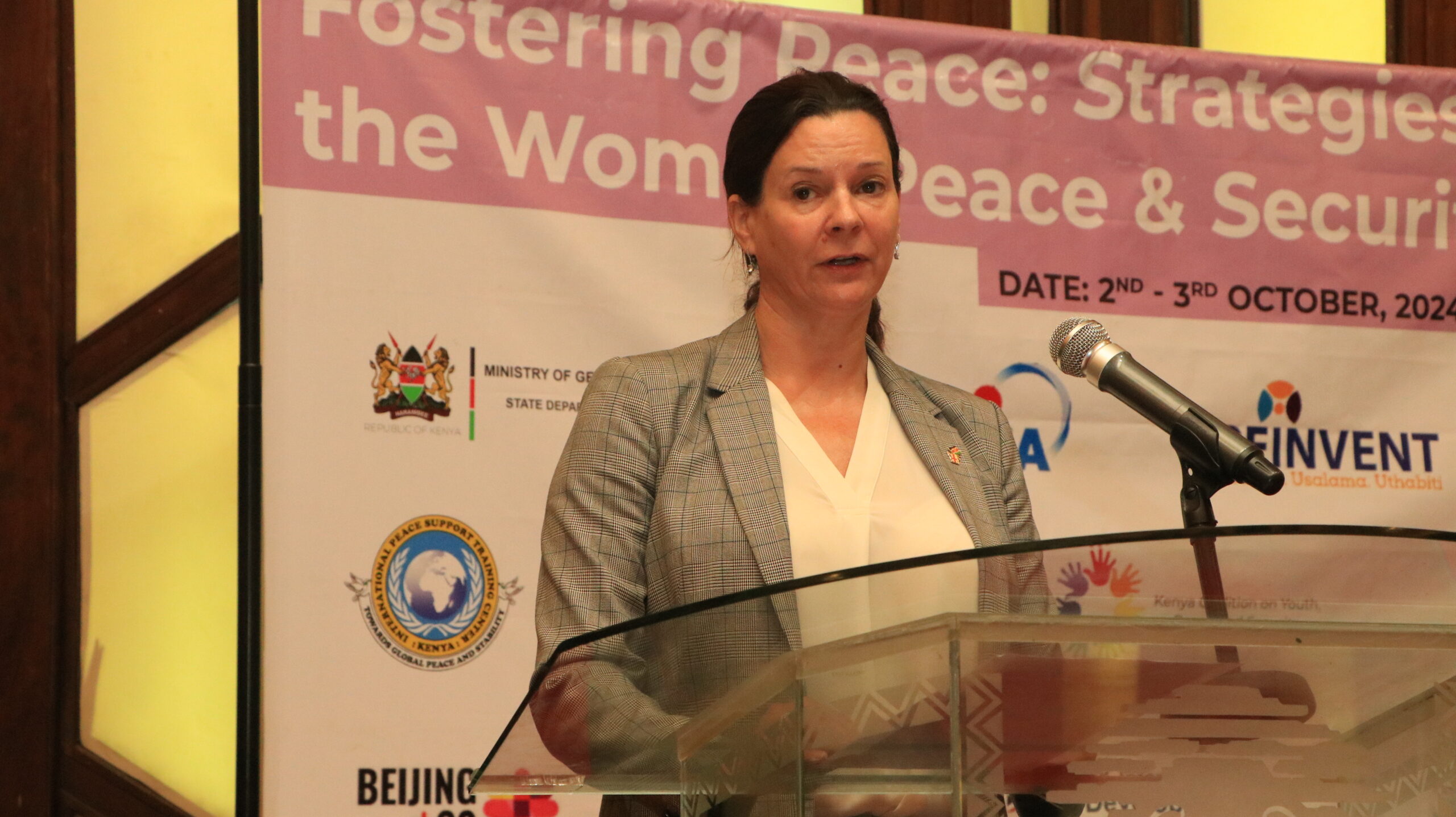
And it isn’t just Kenya driving this agenda forward. Leigh Stubblefield, the UK’s Deputy High Commissioner and Development Director affirmed the UK’s continued leadership on the WPS agenda. As a “penholder” of UNSCR 1325, the UK has shouldered the responsibility to keep the conversation going, nearly a quarter-century after helping to pass the resolution. Stubblefield’s reflections during the symposium reiterated the importance of sustained, international collaboration. The UK’s support of Kenya’s next NAP channelled through the REINVENT Programme, highlights the impact that strong partnerships can have on achieving the vision of UNSCR 1325.
But the symposium wasn’t solely about leaders and policy frameworks. It brought together voices from across borders and at all levels—from high-ranking officials to grassroots activists. These two days of exchange underscored a powerful reality: the WPS agenda thrives not just on high-level policy but on the shared commitment of communities working together. Whether discussing Kenya’s local action plans or strategies from neighbouring nations, participants affirmed that true progress requires local buy-in, resources, and a willingness to adapt.
The final resolution of the symposium focused on sustaining this momentum. Commitments were made not only to localize WPS efforts but to prioritize inclusive partnerships and data-driven approaches. In a world increasingly driven by real-time information, collecting transparent, actionable data will be key to tracking progress and addressing challenges as they arise.
As Eastern and Southern Africa continue to advance the WPS agenda, the region has the chance to be a model for what’s possible. The Nairobi symposium wasn’t just an anniversary celebration; it was a call to action for the next phase. By bringing women’s voices, perspectives, and solutions to the forefront, the WPS agenda is setting a course for peace that’s more inclusive, resilient, and sustainable. As UNSCR 1325 approaches its quarter-century mark, its promise lives on in each local action, every partnership, and the ongoing commitment to a future where women are not only protected in times of conflict but empowered as architects of peace.

